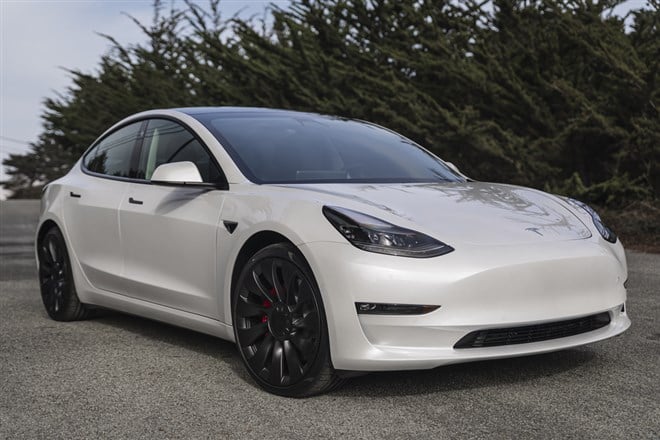
Tesla Inc. (NASDAQ: TSLA) is cutting prices in its European and North American markets. The most recent figures suggest the carmaker could slash retail prices by as much as 20% in the year(s) to come, which could help the EV company in many ways. This price shift comes as Tesla closed its fiscal year below their sales projections in both the US and European markets.
In addition, several consecutive earnings misses led to the company's valuation dropping from $1 trillion to less than $400 billion in the last year. This dragged TSLA stock by approximately 64%—or two-thirds—in the same 12-month period.
How the Inflation Reduction Act Influenced the Price Cut
In the US market, specific price cuts could help the electric vehicle company to qualify for additional federal EV tax credits. Thanks to some of the language in the Inflation Reduction Act, these new prices mean that Tesla's leaving a sales lot now qualifies the buyer for a significant tax credit.
The credit, quite simply, can reduce the final price of a new electric vehicle by as much as $7,500. For example, a brand new Bolt hatchback from Chevrolet (NYSE: GM) would knock the price down from $26,595 MRSP to around $19,000.
That is lower than the average price for a used vehicle across the US. The average Tesla MSRP runs at least twice that amount, depending on the model. Thus, the tax credit could reduce the cost to around $90,000 on average, or under $40,000 at its base price.
The EV Market is In Flux...
Of course, the EV company hopes this will also improve sales volume in several markets. Greater EV competition and reduced demand—likely temporary—have been persistent challenges for Tesla in the US. In the European market, these challenges have already led to price cuts on the Model Y and Model 3 vehicles, but only in France, Norway, Germany, Austria, the UK, and the Netherlands.
But the shift in price may not necessarily represent a shift in investor sentiment. Instead, the industry is becoming more prominent, and the reason for increased competition is higher public interest.
Competition grows when buyers increase, and 2023 should continue to introduce new EV options. Speaking of interest, rising interest rates are further complicating the matter. This has contributed to a significant drop in TSLA value, now down -40.29% over the last quarter and slightly more than -65% in the previous 12 months. So a broad-based price reduction does not necessarily seem unwarranted.
However, the data shows that, aside from slower sales last year, Tesla is doing just fine. For one, the current price target of $220.48 represents a 70.2% upside. And this is good because their current value of $122.40 barely holds just above the 52-week low of $101.81. For context, the 52-week high is $384.29. Moreover, analysts project earnings could grow nearly 28% next year.
Tesla is the most favorable compared to its peers—like Toyota Motor Co (NYSE: TM), General Motors, and Ford Motor (NYSE: F). Although the current $3.24 earnings per share is a bit low—though still within range of the others—everything else is impressive by comparison.
This is particularly true when it comes to returns. For example, while TSLA's 39.45 P/E might suggest the stock is overvalued among its peers, its net margin is more than double most of theirs. Similarly, TSLA earnings at least twice the RoE and RoA vs. GM, Ford, and Toyota.
...But So is Tesla Motors
The good news is that the price cut appears to have accomplished its primary task of increasing sales. For one, CarMax (NYSE: KMX) sold nearly 75% of its Tesla inventory in three days following the price cut. So while it may not have generated the profit margin investors would have likely preferred, it probably helped shore up their bottom line. And new Tesla owners in China have been expressing frustration over their vehicle's quick devaluation, often leading to protests.
However, selling off the inventory in this manner has had quite a secondary effect, both in China, where Tesla first started slashing prices and now in the US. As a result, customers who paid more for their Tesla vehicle in December are now concerned that their cars will soon fall in resale value, just as in China.
Considering all the challenges Tesla faces—increased competition, overall public interest, and sinking sentiment after liquidation—it is safe to say that many factors are at play. The recent price cuts seem to have affected TSLA'a momentum, but not so much on the stock's value. Still, the variables make for great uncertainty, which is probably why analysts have given TSLA a HOLD rating.














